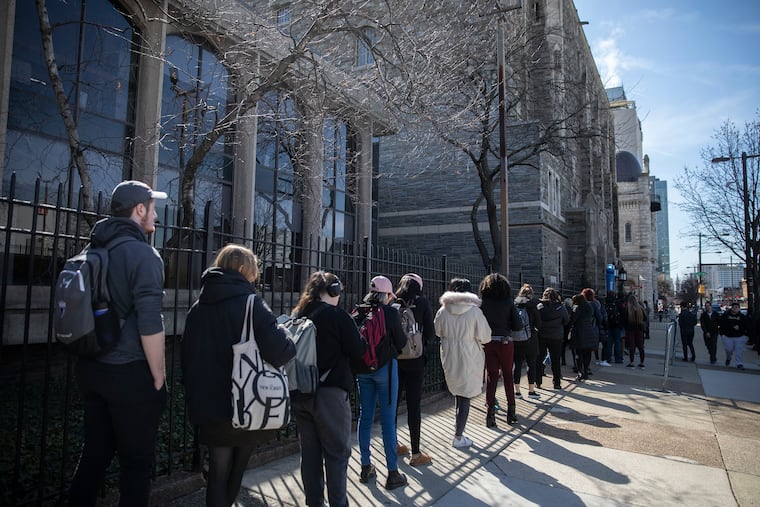Have faith: Vaccination works | Editorial
Measles is back. But the good news is that new cases may prompt a fresh look at vaccination exemptions.

Measles — a serious communicable disease older Americans may remember enduring as children — made an unwelcome reappearance in Ocean County, N.J., late last year, and more recently, in New York, Texas, and some 17 other states. And at Temple University, an isolated outbreak of more than 100 cases of mumps had been reported by the beginning of April.
These events, like the diseases themselves, are different. But both measles and mumps have been largely kept under control for decades by childhood immunization programs. And their recent reappearances have arisen during a plague of pseudoscience and conspiracy theorizing that has for the last 20 years chipped away at the pro-vaccination consensus reached in the second half of the 20th century.
The measles outbreak is concerning enough that New York has closed schools and seeks to make vaccination mandatory in some affected neighborhoods. Nationally, the new cases also may bolster legislative efforts to tighten the availability of, redefine, or eliminate state-level religious and or philosophical exemptions that parents skeptical of or virulently opposed to vaccination may seek to avoid having their children immunized.
Like many other states, New Jersey and Pennsylvania provide for religious as well as medical exemptions. Three states — Mississippi, West Virginia, and California — grant exemptions solely for medical reasons. New Jersey would be wise to follow this example, as has been suggested by Assembly health committee chairman Herb Conaway Jr. (D., Burlington), a physician. Pennsylvania ought to take a look at this as well.
In 1998, flawed, and eventually debunked, research purportedly asserted linkage between some vaccines and autism spectrum disorder. The rise of social media has since enabled the spread of an “anti-vaxx” gospel, complete with celebrity spokespeople.
Younger Americans with no memory or awareness of the potential seriousness of measles and other diseases largely eradicated in recent decades may be more prone to question immunization programs. Worried parents have every right to ask questions, and to receive compassionate and accurate answers.
Experts such as Arthur L. Caplan, a professor of bioethics at the NYU School of Medicine, suggest social media platforms should be encouraged to remove fake material about vaccines. Parents, he said, need to understand that a decision to shield their child from an imaginary danger may well put that child, and other children, at genuine risk.
“About 85 percent of parents who are hesitant just want to know if there’s fire where there’s smoke. But you’re never going to be able to educate the conspiracy theorists," noted Paul A. Offit, chairman of vaccinology in the pediatrics department at UPenn’s Perelman School of Medicine. Interviewed last week on NPR, Offit reminded listeners about Philadelphia’s deadly 1991 measles outbreak, which killed nine and sickened more than 1,000 children.
Measles erupted among the congregations at two churches in the city where faith healing was preached and modern medicine was distrusted. Some ultra-Orthodox Jewish parents in the Brooklyn neighborhoods where measles has been reported also are reluctant to immunize their children.
Religious feelings about vaccination, however deeply felt, have no place in public-health policy, which quite rightly places faith in medicine, not divine intervention.
An earlier version of this editorial erred in characterizing New Jersey’s exemption policy regarding vaccinations. The state offers medical and religious exemptions only.